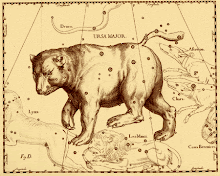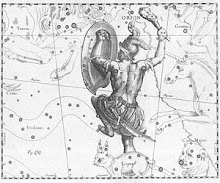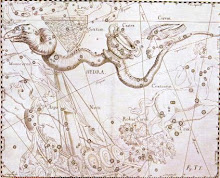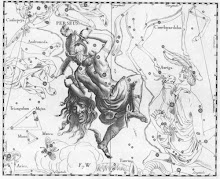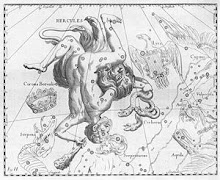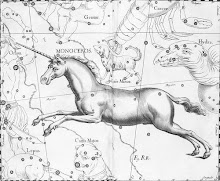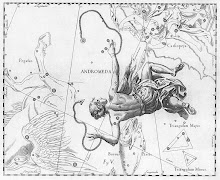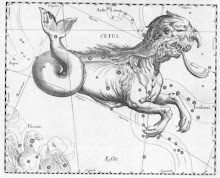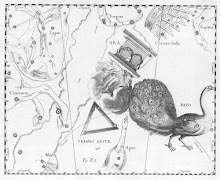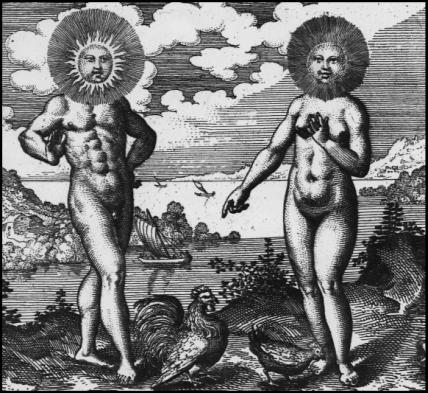Affichage des articles dont le libellé est MALORY Le Morte d'Arthur (Book III). Afficher tous les articles
Affichage des articles dont le libellé est MALORY Le Morte d'Arthur (Book III). Afficher tous les articles
THOMAS MALORY Le Morte d'Arthur (Book III)
BOOK III
CHAPTER I. How King Arthur took a wife, and wedded Guenever, daughter to Leodegrance, King of the Land of Cameliard, with whom he had the Round Table.
IN the beginning of Arthur, after he was chosen king by adventure and by grace; for the most part of the barons knew not that he was Uther Pendragon's son, but as Merlin made it openly known. But yet many kings and lords held great war against him for that cause, but well Arthur overcame them all, for the most part the days of his life he was ruled much by the counsel of Merlin. So it fell on a time King Arthur said unto Merlin, My barons will let me have no rest, but needs I must take a wife, and I will none take but by thy counsel and by thine advice. It is well done, said Merlin, that ye take a wife, for a man of your bounty and noblesse should not be without a wife. Now is there any that ye love more than another? Yea, said King Arthur, I love Guenever the king's daughter, Leodegrance of the land of Cameliard, the which holdeth in his house the Table Round that ye told he had of my father Uther. And this damosel is the most valiant and fairest lady that I know living, or yet that ever I could find. Sir, said Merlin, as of her beauty and fairness she is one of the fairest alive, but, an ye loved her not so well as ye do, I should find you a damosel of beauty and of goodness that should like you and please you, an your heart were not set; but there as a man's heart is set, he will be loath to return. That is truth, said King Arthur. But Merlin warned the king covertly that Guenever was not wholesome for him to take to wife, for he warned him that Launcelot should love her, and she him again; and so he turned his tale to the adventures of Sangreal.
Then Merlin desired of the king for to have men with him that should enquire of Guenever, and so the king granted him, and Merlin went forth unto King Leodegrance of Cameliard, and told him of the desires of the king that he would have unto his wife Guenever his daughter. That is to me, said King Leodegrance, the best tidings that ever I heard, that so worthy a king of prowess and noblesse will wed my daughter. And as for my lands, I will give him, wist I it might please him, but he hath lands enow, him needeth none; but I shall send him a gift shall please him much more, for I shall give him the Table Round, the which Uther Pendragon gave me, and when it is full complete, there is an hundred knights and fifty. And as for an hundred good knights I have myself, but I faute fifty, for so many have been slain in my days. And so Leodegrance delivered his daughter Guenever unto Merlin, and the Table Round with the hundred knights, and so they rode freshly, with great royalty, what by water and what by land, till that they came nigh unto London.
CHAPTER II. How the Knights of the Round Table were ordained and their sieges blessed by the Bishop of Canterbury.
WHEN King Arthur heard of the coming of Guenever and the hundred knights with the Table Round, then King Arthur made great joy for her coming, and that rich present, and said openly, This fair lady is passing welcome unto me, for I have loved her long, and therefore there is nothing so lief to me. And these knights with the Round Table please me more than right great riches. And in all haste the king let ordain for the marriage and the coronation in the most honourable wise that could be devised. Now, Merlin, said King Arthur, go thou and espy me in all this land fifty knights which be of most prowess and worship. Within short time Merlin had found such knights that should fulfil twenty and eight knights, but no more he could find. Then the Bishop of Canterbury was fetched, and he blessed the sieges with great royalty and devotion, and there set the eight and twenty knights in their sieges. And when this was done Merlin said, Fair sirs, ye must all arise and come to King Arthur for to do him homage; he will have the better will to maintain you. And so they arose and did their homage, and when they were gone Merlin found in every sieges letters of gold that told the knights' names that had sitten therein. But two sieges were void. And so anon came young Gawaine and asked the king a gift. Ask, said the king, and I shall grant it you. Sir, I ask that ye will make me knight that same day ye shall wed fair Guenever. I will do it with a good will, said King Arthur, and do unto you all the worship that I may, for I must by reason ye are my nephew, my sister's son.
CHAPTER III. How a poor man riding upon a lean mare desired King Arthur to make his son knight.
FORTHWITHAL there came a poor man into the court, and brought with him a fair young man of eighteen years of age riding upon a lean mare; and the poor man asked all men that he met, Where shall I find King Arthur? Yonder he is, said the knights, wilt thou anything with him? Yea, said the poor man, therefore I came hither. Anon as he came before the king, he saluted him and said: O King Arthur, the flower of all knights and kings, I beseech Jesu save thee. Sir, it was told me that at this time of your marriage ye would give any man the gift that he would ask, out except that were unreasonable. That is truth, said the king, such cries I let make, and that will I hold, so it apair not my realm nor mine estate. Ye say well and graciously, said the poor man; Sir, I ask nothing else but that ye will make my son here a knight. It is a great thing thou askest of me, said the king. What is thy name? said the king to the poor man. Sir, my name is Aries the cowherd. Whether cometh this of thee or of thy son? said the king. Nay, sir, said Aries, this desire cometh of my son and not of me, for I shall tell you I have thirteen sons, and all they will fall to what labour I put them, and will be right glad to do labour, but this child will not labour for me, for anything that my wife or I may do, but always he will be shooting or casting darts, and glad for to see battles and to behold knights, and always day and night he desireth of me to be made a knight. What is thy name? said the king unto the young man. Sir, my name is Tor. The king beheld him fast, and saw he was passingly well-visaged and passingly well made of his years. Well, said King Arthur unto Aries the cowherd, fetch all thy sons afore me that I may see them. And so the poor man did, and all were shaped much like the poor man. But Tor was not like none of them all in shape nor in countenance, for he was much more than any of them. Now, said King Arthur unto the cow herd, where is the sword he shall be made knight withal? It is here, said Tor. Take it out of the sheath, said the king, and require me to make you a knight.
Then Tor alighted off his mare and pulled out his sword, kneeling, and requiring the king that he would make him knight, and that he might be a knight of the Table Round. As for a knight I will make you, and therewith smote him in the neck with the sword, saying, Be ye a good knight, and so I pray to God so ye may be, and if ye be of prowess and of worthiness ye shall be a knight of the Table Round. Now Merlin, said Arthur, say whether this Tor shall be a good knight or no. Yea, sir, he ought to be a good knight, for he is come of as good a man as any is alive, and of kings' blood. How so, sir? said the king. I shall tell you, said Merlin: This poor man, Aries the cowherd, is not his father; he is nothing sib to him, for King Pellinore is his father. I suppose nay, said the cowherd. Fetch thy wife afore me, said Merlin, and she shall not say nay. Anon the wife was fetched, which was a fair housewife, and there she answered Merlin full womanly, and there she told the king and Merlin that when she was a maid, and went to milk kine, there met with her a stern knight, and half by force he had my maidenhead, and at that time he begat my son Tor, and he took away from me my greyhound that I had that time with me, and said that he would keep the greyhound for my love. Ah, said the cowherd, I weened not this, but I may believe it well, for he had never no tatches of me. Sir, said Tor unto Merlin, dishonour not my mother. Sir, said Merlin, it is more for your worship than hurt, for your father is a good man and a king, and he may right well advance you and your mother, for ye were begotten or ever she was wedded. That is truth, said the wife. It is the less grief unto me, said the cowherd.
CHAPTER IV. How Sir Tor was known for son of King Pellinore, and how Gawaine was made knight.
SO on the morn King Pellinore came to the court of King Arthur, which had great joy of him, and told him of Tor, how he was his son, and how he had made him knight at the request of the cowherd. When Pellinore beheld Tor, he pleased him much. So the king made Gawaine knight, but Tor was the first he made at the feast. What is the cause, said King Arthur, that there be two places void in the sieges? Sir, said Merlin, there shall no man sit in those places but they that shall be of most worship. But in the Siege Perilous there shall no man sit therein but one, and if there be any so hardy to do it he shall be destroyed, and he that shall sit there shall have no fellow. And therewith Merlin took King Pellinore by the hand, and in the one hand next the two sieges and the Siege Perilous he said, in open audience, This is your place and best ye are worthy to sit therein of any that is here. Thereat sat Sir Gawaine in great envy and told Gaheris his brother, yonder knight is put to great worship, the which grieveth me sore, for he slew our father King Lot, therefore I will slay him, said Gawaine, with a sword that was sent me that is passing trenchant. Ye shall not so, said Gaheris, at this time, for at this time I am but a squire, and when I am made knight I will be avenged on him, and therefore, brother, it is best ye suffer till another time, that we may have him out of the court, for an we did so we should trouble this high feast. I will well, said Gawaine, as ye will.
CHAPTER V. How at feast of the wedding of King Arthur to Guenever, a white hart came into the hall, and thirty couple hounds, and how a brachet
pinched the hart which was taken away.
THEN was the high feast made ready, and the king was wedded at Camelot unto Dame Guenever in the church of Saint Stephen's, with great solemnity. And as every man was set after his degree, Merlin went to all the knights of the Round Table, and bade them sit still, that none of them remove. For ye shall see a strange and a marvellous adventure. Right so as they sat there came running in a white hart into the hall, and a white brachet next him, and thirty couple of black running hounds came after with a great cry, and the hart went about the Table Round as he went by other boards. The white brachet bit him by the buttock and pulled out a piece, wherethrough the hart leapt a great leap and overthrew a knight that sat at the board side; and therewith the knight arose and took up the brachet, and so went forth out of the hall, and took his horse and rode his way with the brachet. Right so anon came in a lady on a white palfrey, and cried aloud to King Arthur, Sir, suffer me not to have this despite, for the brachet was mine that the knight led away. I may not do therewith, said the king.
With this there came a knight riding all armed on a great horse, and took the lady away with him with force, and ever she cried and made great dole. When she was gone the king was glad, for she made such a noise. Nay, said Merlin, ye may not leave these adventures so lightly; for these adventures must be brought again or else it would be disworship to you and to your feast. I will, said the king, that all be done by your advice. Then, said Merlin, let call Sir Gawaine, for he must bring again the white hart. Also, sir, ye must let call Sir Tor, for he must bring again the brachet and the knight, or else slay him. Also let call King Pellinore, for he must bring again the lady and the knight, or else slay him. And these three knights shall do marvellous adventures or they come again. Then were they called all three as it rehearseth afore, and each of them took his charge, and armed them surely. But Sir Gawaine had the first request, and therefore we will begin at him.
CHAPTER VI. How Sir Gawaine rode for to fetch again the hart, and how two brethren fought each against other for the hart.
SIR GAWAINE rode more than a pace, and Gaheris his brother that rode with him instead of a squire to do him service. So as they rode they saw two knights fight on horseback passing sore, so Sir Gawaine and his brother rode betwixt them, and asked them for what cause they fought so. The one knight answered and said, We fight for a simple matter, for we two be two brethren born and begotten of one man and of one woman. Alas, said Sir Gawaine, why do ye so? Sir, said the elder, there came a white hart this way this day, and many hounds chased him, and a white brachet was alway next him, and we understood it was adventure made for the high feast of King Arthur, and therefore I would have gone after to have won me worship; and here my younger brother said he would go after the hart, for he was better knight than I: and for this cause we fell at debate, and so we thought to prove which of us both was better knight. This is a simple cause, said Sir Gawaine; uncouth men ye should debate withal, and not brother with brother; therefore but if you will do by my counsel I will have ado with you, that is ye shall yield you unto me, and that ye go unto King Arthur and yield you unto his grace. Sir knight, said the two brethren, we are forfoughten and much blood have we lost through our wilfulness, and therefore we would be loath to have ado with you. Then do as I will have you, said Sir Gawaine. We will agree to fulfil your will; but by whom shall we say that we be thither sent? Ye may say, By the knight that followeth the quest of the hart that was white. Now what is your name? said Gawaine. Sorlouse of the Forest, said the elder. And my name is, said the younger, Brian of the Forest. And so they departed and went to the king's court, and Sir Gawaine on his quest.
And as Gawaine followed the hart by the cry of the hounds, even afore him there was a great river, and the hart swam over; and as Sir Gawaine would follow after, there stood a knight over the other side, and said, Sir knight, come not over after this hart but if thou wilt joust with me. I will not fail as for that, said Sir Gawaine, to follow the quest that I am in, and so made his horse to swim over the water. And anon they gat their spears and ran together full hard; but Sir Gawaine smote him off his horse, and then he turned his horse and bade him yield him. Nay, said the knight, not so, though thou have the better of me on horseback. I pray thee, valiant knight, alight afoot, and match we together with swords. What is your name? said Sir Gawaine. Allardin of the Isles, said the other. Then either dressed their shields and smote together, but Sir Gawaine smote him so hard through the helm that it went to the brains, and the knight fell down dead. Ah! said Gaheris, that was a mighty stroke of a young knight.
CHAPTER VII How the hart was chased into a castle and there slain, and how Sir Gawaine slew a lady.
THEN Gawaine and Gaheris rode more than a pace after the white hart, and let slip at the hart three couple of greyhounds, and so they chased the hart into a castle, and in the chief place of the castle they slew the hart; Sir Gawaine and Gaheris followed after. Right so there came a knight out of a chamber with a sword drawn in his hand and slew two of the greyhounds, even in the sight of Sir Gawaine, and the remnant he chased them with his sword out of the castle. And when he came again, he said, O my white hart, me repenteth that thou art dead, for my sovereign lady gave thee to me, and evil have I kept thee, and thy death shall be dear bought an I live. And anon he went into his chamber and armed him, and came out fiercely, and there met he with Sir Gawaine. Why have ye slain my hounds? said Sir Gawaine, for they did but their kind, and liefer I had ye had wroken your anger upon me than upon a dumb beast. Thou sayest truth, said the knight, I have avenged me on thy hounds, and so I will on thee or thou go. Then Sir Gawaine alighted afoot and dressed his shield, and struck together mightily, and clave their shields, and stoned their helms, and brake their hauberks that the blood ran down to their feet.
At the last Sir Gawaine smote the knight so hard that he fell to the earth, and then he cried mercy, and yielded him, and besought him as he was a knight and gentleman, to save his life. Thou shalt die, said Sir Gawaine, for slaying of my hounds. I will make amends, said the knight, unto my power. Sir Gawaine would no mercy have, but unlaced his helm to have stricken off his head. Right so came his lady out of a chamber and fell over him, and so he smote off her head by misadventure. Alas, said Gaheris, that is foully and shamefully done, that shame shall never from you; also ye should give mercy unto them that ask mercy, for a knight without mercy is without worship. Sir Gawaine was so stonied of the death of this fair lady that he wist not what he did, and said unto the knight, Arise, I will give thee mercy. Nay, nay, said the knight, I take no force of mercy now, for thou hast slain my love and my lady that I loved best of all earthly things. Me sore repenteth it, said Sir Gawaine, for I thought to strike unto thee; but now thou shalt go unto King Arthur and tell him of thine adventures, and how thou art overcome by the knight that went in the quest of the white hart. I take no force, said the knight, whether I live or I die; but so for dread of death he swore to go unto King Arthur, and he made him to bear one greyhound before him on his horse, and another behind him. What is your name? said Sir Gawaine, or we depart. My name is, said the knight, Ablamar of the Marsh. So he departed toward Camelot.
CHAPTER VIII. How four knights fought against Gawaine and Gaheris, and how they were overcome, and their lives saved at request of four ladies.
AND Sir Gawaine went into the castle, and made him ready to lie there all night, and would have unarmed him. What will ye do, said Gaheris, will ye unarm you in this country? Ye may think ye have many enemies here. They had not sooner said that word but there came four knights well armed, and assailed Sir Gawaine hard, and said unto him, Thou new-made knight, thou hast shamed thy knighthood, for a knight without mercy is dishonoured. Also thou hast slain a fair lady to thy great shame to the world's end, and doubt thou not thou shalt have great need of mercy or thou depart from us. And therewith one of them smote Sir Gawaine a great stroke that nigh he fell to the earth, and Gaheris smote him again sore, and so they were on the one side and on the other, that Sir Gawaine and Gaheris were in jeopardy of their lives; and one with a bow, an archer, smote Sir Gawaine through the arm that it grieved him wonderly sore. And as they should have been slain, there came four fair ladies, and besought the knights of grace for Sir Gawaine; and goodly at request of the ladies they gave Sir Gawaine and Gaheris their lives, and made them to yield them as prisoners. Then Gawaine and Gaheris made great dole. Alas! said Sir Gawaine, mine arm grieveth me sore, I am like to be maimed; and so made his complaint piteously.
Early on the morrow there came to Sir Gawaine one of the four ladies that had heard all his complaint, and said, Sir knight, what cheer? Not good, said he. It is your own default, said the lady, for ye have done a passing foul deed in the slaying of the lady, the which will be great villainy unto you. But be ye not of King Arthur's kin? said the lady. Yes truly, said Sir Gawaine. What is your name? said the lady, ye must tell it me or ye pass. My name is Gawaine, the King Lot of Orkney's son, and my mother is King Arthur's sister. Ah! then are ye nephew unto King Arthur, said the lady, and I shall so speak for you that ye shall have conduct to go to King Arthur for his love. And so she departed and told the four knights how their prisoner was King Arthur's nephew, and his name is Sir Gawaine, King Lot's son of Orkney. And they gave him the hart's head because it was in his quest. Then anon they delivered Sir Gawaine under this promise, that he should bear the dead lady with him in this manner; the head of her was hanged about his neck, and the whole body of her lay before him on his horse's mane. Right so rode he forth unto Camelot. And anon as he was come, Merlin desired of King Arthur that Sir Gawaine should be sworn to tell of all his adventures, and how he slew the lady, and how he would give no mercy unto the knight, wherethrough the lady was slain. Then the king and the queen were greatly displeased with Sir Gawaine for the slaying of the lady. And there by ordinance of the queen there was set a quest of ladies on Sir Gawaine, and they judged him for ever while he lived to be with all ladies, and to fight for their quarrels; and that ever he should be courteous, and never to refuse mercy to him that asketh mercy. Thus was Gawaine sworn upon the Four Evangelists that he should never be against lady nor gentlewoman, but if he fought for a lady and his adversary fought for another. And thus endeth the adventure of Sir Gawaine that he did at the marriage of King Arthur. Amen.
CHAPTER IX. How Sir Tor rode after the knight with the brachet, and of his adventure by the way.
WHEN Sir Tor was ready, he mounted upon his horseback, and rode after the knight with the brachet. So as he rode he met with a dwarf suddenly that smote his horse on the head with a staff, that he went backward his spear length. Why dost thou so? said Sir Tor. For thou shalt not pass this way, but if thou joust with yonder knights of the pavilions. Then was Tor ware where two pavilions were, and great spears stood out, and two shields hung on trees by the pavilions. I may not tarry, said Sir Tor, for I am in a quest that I must needs follow. Thou shalt not pass, said the dwarf, and therewithal he blew his horn. Then there came one armed on horseback, and dressed his shield, and came fast toward Tor, and he dressed him against him, and so ran together that Tor bare him from his horse. And anon the knight yielded him to his mercy. But, sir, I have a fellow in yonder pavilion that will have ado with you anon. He shall be welcome, said Sir Tor. Then was he ware of another knight coming with great raundon, and each of them dressed to other, that marvel it was to see; but the knight smote Sir Tor a great stroke in midst of the shield that his spear all to-shivered. And Sir Tor smote him through the shield below of the shield that it went through the cost of the knight, but the stroke slew him not. And therewith Sir Tor alighted and smote him on the helm a great stroke, and therewith the knight yielded him and besought him of mercy. I will well, said Sir Tor, but thou and thy fellow must go unto King Arthur, and yield you prisoners unto him. By whom shall we say are we thither sent? Ye shall say by the knight that went in the quest of the knight that went with the brachet. Now, what be your two names? said Sir Tor. My name is, said the one, Sir Felot of Langduk; and my name is, said the other, Sir Petipase of Winchelsea. Now go ye forth, said Sir Tor, and God speed you and me. Then came the dwarf and said unto Sir Tor, I pray you give me a gift. I will well, said Sir Tor, ask. I ask no more, said the dwarf, but that ye will suffer me to do you service, for I will serve no more recreant knights. Take an horse, said Sir Tor, and ride on with me. I wot ye ride after the knight with the white brachet, and I shall bring you where he is, said the dwarf. And so they rode throughout a forest, and at the last they were ware of two pavilions, even by a priory, with two shields, and the one shield was enewed with white, and the other shield was red.
CHAPTER X. How Sir Tor found the brachet with a lady, and how a knight assailed him for the said brachet.
THEREWITH Sir Tor alighted and took the dwarf his glaive, and so he came to the white pavilion, and saw three damosels lie in it, on one pallet, sleeping, and so he went to the other pavilion, and found a lady lying sleeping therein, but there was the white brachet that bayed at her fast, and therewith the lady yede out of the pavilion and all her damosels. But anon as Sir Tor espied the white brachet, he took her by force and took her to the dwarf. What, will ye so, said the lady, take my brachet from me? Yea, said Sir Tor, this brachet have I sought from King Arthur's court hither. Well, said the lady, knight, ye shall not go far with her, but that ye shall be met and grieved. I shall abide what adventure that cometh by the grace of God, and so mounted upon his horse, and passed on his way toward Camelot; but it was so near night he might not pass but little further. Know ye any lodging? said Tor. I know none, said the dwarf, but here beside is an hermitage, and there ye must take lodging as ye find. And within a while they came to the hermitage and took lodging; and was there grass, oats and bread for their horses; soon it was sped, and full hard was their supper; but there they rested them all night till on the morn, and heard a mass devoutly, and took their leave of the hermit, and Sir Tor prayed the hermit to pray for him. He said he would, and betook him to God. And so mounted upon horseback and rode towards Camelot a long while.
With that they heard a knight call loud that came after them, and he said, Knight, abide and yield my brachet that thou took from my lady. Sir Tor returned again, and beheld him how he was a seemly knight and well horsed, and well armed at all points; then Sir Tor dressed his shield, and took his spear in his hands, and the other came fiercely upon him, and smote both horse and man to the earth. Anon they arose lightly and drew their swords as eagerly as lions, and put their shields afore them, and smote through the shields, that the cantels fell off both parties. Also they tamed their helms that the hot blood ran out, and the thick mails of their hauberks they carved and rove in sunder that the hot blood ran to the earth, and both they had many wounds and were passing weary. But Sir Tor espied that the other knight fainted, and then he sued fast upon him, and doubled his strokes, and gart him go to the earth on the one side. Then Sir Tor bade him yield him. That will I not, said Abelleus, while my life lasteth and the soul is within my body, unless that thou wilt give me the brachet. That will I not do, said Sir Tor, for it was my quest to bring again thy brachet, thee, or both.
CHAPTER XI. How Sir Tor overcame the knight, and how he lost his head at the request of a lady.
WITH that came a damosel riding on a palfrey as fast as she might drive, and cried with a loud voice unto Sir Tor. What will ye with me? said Sir Tor. I beseech thee, said the damosel, for King Arthur's love, give me a gift; I require thee, gentle knight, as thou art a gentleman. Now, said Tor, ask a gift and I will give it you. Gramercy, said the damosel; now I ask the head of the false knight Abelleus, for he is the most outrageous knight that liveth, and the greatest murderer. I am loath, said Sir Tor, of that gift I have given you; let him make amends in that he hath trespassed unto you. Now, said the damosel, he may not, for he slew mine own brother before mine own eyes, that was a better knight than he, an he had had grace; and I kneeled half an hour afore him in the mire for to save my brother's life, that had done him no damage, but fought with him by adventure of arms, and so for all that I could do he struck off his head; wherefore I require thee, as thou art a true knight, to give me my gift, or else I shall shame thee in all the court of King Arthur; for he is the falsest knight living, and a great destroyer of good knights. Then when Abelleus heard this, he was more afeard, and yielded him and asked mercy. I may not now, said Sir Tor, but if I should be found false of my promise; for while I would have taken you to mercy ye would none ask, but if ye had the brachet again, that was my quest. And therewith he took off his helm, and he arose and fled, and Sir Tor after him, and smote off his head quite.
Now sir, said the damosel, it is near night; I pray you come and lodge with me here at my place, it is here fast by. I will well, said Sir Tor, for his horse and he had fared evil since they departed from Camelot, and so he rode with her, and had passing good cheer with her; and she had a passing fair old knight to her husband that made him passing good cheer, and well eased both his horse and him. And on the morn he heard his mass, and brake his fast, and took his leave of the knight and of the lady, that besought him to tell them his name. Truly, he said, my name is Sir Tor that was late made knight, and this was the first quest of arms that ever I did, to bring again that this knight Abelleus took away from King Arthur's court. O fair knight, said the lady and her husband, an ye come here in our marches, come and see our poor lodging, and it shall be always at your commandment. So Sir Tor departed and came to Camelot on the third day by noon, and the king and the queen and all the court was passing fain of his coming, and made great joy that he was come again; for he went from the court with little succour, but as King Pellinore his father gave him an old courser, and King Arthur gave him armour and a sword, and else had he none other succour, but rode so forth himself alone. And then the king and the queen by Merlin's advice made him to swear to tell of his adventures, and so he told and made proofs of his deeds as it is afore rehearsed, wherefore the king and the queen made great joy. Nay, nay, said Merlin, these be but japes to that he shall do; for he shall prove a noble knight of prowess, as good as any is living, and gentle and courteous, and of good tatches, and passing true of his promise, and never shall outrage. Wherethrough Merlin's words King Arthur gave him an earldom of lands that fell unto him. And here endeth the quest of Sir Tor, King Pellinore's son.
CHAPTER XII. How King Pellinore rode after the lady and the knight that led her away, and how a lady desired help of him, and how he fought with two
knights for that lady, of whom he slew the one at the first stroke.
THEN King Pellinore armed him and mounted upon his horse, and rode more than a pace after the lady that the knight led away. And as he rode in a forest, he saw in a valley a damosel sit by a well, and a wounded knight in her arms, and Pellinore saluted her. And when she was ware of him, she cried overloud, Help me, knight; for Christ's sake, King Pellinore. And he would not tarry, he was so eager in his quest, and ever she cried an hundred times after help. When she saw he would not abide, she prayed unto God to send him as much need of help as she had, and that he might feel it or he died. So, as the book telleth, the knight there died that there was wounded, wherefore the lady for pure sorrow slew herself with his sword. As King Pellinore rode in that valley he met with a poor man, a labourer. Sawest thou not, said Pellinore, a knight riding and leading away a lady? Yea, said the man, I saw that knight, and the lady that made great dole; and yonder beneath in a valley there shall ye see two pavilions, and one of the knights of the pavilions challenged that lady of that knight, and said she was his cousin near, wherefore he should lead her no farther. And so they waged battle in that quarrel, the one said he would have her by force, and the other said he would have the rule of her, by cause he was her kinsman, and would lead her to her kin. For this quarrel he left them fighting. And if ye will ride a pace ye shall find them fighting, and the lady was beleft with the two squires in the pavilions. God thank thee, said King Pellinore.
Then he rode a wallop till he had a sight of the two pavilions, and the two knights fighting. Anon he rode unto the pavilions, and saw the lady that was his quest, and said, Fair lady, ye must go with me unto the court of King Arthur. Sir knight, said the two squires that were with her, yonder are two knights that fight for this lady, go thither and depart them, and be agreed with them, and then may ye have her at your pleasure. Ye say well, said King Pellinore. And anon he rode betwixt them, and departed them, and asked them the causes why that they fought? Sir knight, said the one, I shall tell you, this lady is my kinswoman nigh, mine aunt's daughter, and when I heard her complain that she was with him maugre her head, I waged battle to fight with him. Sir knight, said the other, whose name was Hontzlake of Wentland, and this lady I gat by my prowess of arms this day at Arthur's court. That is untruly said, said King Pellinore, for ye came in suddenly there as we were at the high feast, and took away this lady or any man might make him ready; and therefore it was my quest to bring her again and you both, or else the one of us to abide in the field; therefore the lady shall go with me, or I will die for it, for I have promised it King Arthur. And therefore fight ye no more, for none of you shall have no part of her at this time; and if ye list to fight for her, fight with me, and I will defend her. Well, said the knights, make you ready, and we shall assail you with all our power. And as King Pellinore would have put his horse from them, Sir Hontzlake rove his horse through with a sword, and said: Now art thou on foot as well as we are. When King Pellinore espied that his horse was slain, lightly he leapt from his horse and pulled out his sword, and put his shield afore him, and said, Knight, keep well thy head, for thou shalt have a buffet for the slaying of my horse. So King Pellinore gave him such a stroke upon the helm that he clave the head down to the chin, that he fell to the earth dead.
CHAPTER XIII. How King Pellinore gat the lady and brought her to Camelot to the court of King Arthur.
AND then he turned him to the other knight, that was sore wounded. But when he saw the other's buffet, he would not fight, but kneeled down and said, Take my cousin the lady with you at your request, and I require you, as ye be a true knight, put her to no shame nor villainy. What, said King Pellinore, will ye not fight for her? No, sir, said the knight, I will not fight with such a knight of prowess as ye be. Well, said Pellinore, ye say well; I promise you she shall have no villainy by me, as I am true knight; but now me lacketh an horse, said Pellinore, but I will have Hontzlake's horse. Ye shall not need, said the knight, for I shall give you such an horse as shall please you, so that you will lodge with me, for it is near night. I will well, said King Pellinore, abide with you all night. And there he had with him right good cheer, and fared of the best with passing good wine, and had merry rest that night. And on the morn he heard a mass and dined; and then was brought him a fair bay courser, and King Pellinore's saddle set upon him. Now, what shall I call you? said the knight, inasmuch as ye have my cousin at your desire of your quest. Sir, I shall tell you, my name is King Pellinore of the Isles and knight of the Table Round. Now I am glad, said the knight, that such a noble man shall have the rule of my cousin. Now, what is your name? said Pellinore, I pray you tell me. Sir, my name is Sir Meliot of Logurs, and this lady my cousin hight Nimue, and the knight that was in the other pavilion is my sworn brother, a passing good knight, and his name is Brian of the Isles, and he is full loath to do wrong, and full loath to fight with any man, but if he be sore sought on, so that for shame he may not leave it. It is marvel, said Pellinore, that he will not have ado with me. Sir, he will not have ado with no man but if it be at his request. Bring him to the court, said Pellinore, one of these days. Sir, we will come together. And ye shall be welcome, said Pellinore, to the court of King Arthur, and greatly allowed for your coming. And so he departed with the lady, and brought her to Camelot.
So as they rode in a valley it was full of stones, and there the lady's horse stumbled and threw her down, that her arm was sore bruised and near she swooned for pain. Alas! sir, said the lady, mine arm is out of lithe, wherethrough I must needs rest me. Ye shall well, said King Pellinore. And so he alighted under a fair tree where was fair grass, and he put his horse thereto, and so laid him under the tree and slept till it was nigh night. And when he awoke he would have ridden. Sir, said the lady, it is so dark that ye may as well ride backward as forward. So they abode still and made there their lodging. Then Sir Pellinore put off his armour; then a little afore midnight they heard the trotting of an horse. Be ye still, said King Pellinore, for we shall hear of some adventure.
CHAPTER XIV. How on the way he heard two knights, as he lay by night in a valley, and of their adventures.
AND therewith he armed him. So right even afore him there met two knights, the one came froward Camelot, and the other from the north, and either saluted other. What tidings at Camelot? said the one. By my head, said the other, there have I been and espied the court of King Arthur, and there is such a fellowship they may never be broken, and well-nigh all the world holdeth with Arthur, for there is the flower of chivalry. Now for this cause I am riding into the north, to tell our chieftains of the fellowship that is withholden with King Arthur. As for that, said the other knight, I have brought a remedy with me, that is the greatest poison that ever ye heard speak of, and to Camelot will I with it, for we have a friend right nigh King Arthur, and well cherished, that shall poison King Arthur; for so he hath promised our chieftains, and received great gifts for to do it. Beware, said the other knight, of Merlin, for he knoweth all things by the devil's craft. Therefore will I not let it, said the knight. And so they departed asunder. Anon after Pellinore made him ready, and his lady, [and] rode toward Camelot; and as they came by the well there as the wounded knight was and the lady, there he found the knight, and the lady eaten with lions or wild beasts, all save the head, wherefore he made great sorrow, and wept passing sore, and said, Alas! her life might I have saved; but I was so fierce in my quest, therefore I would not abide. Wherefore make ye such dole? said the lady. I wot not, said Pellinore, but my heart mourneth sore of the death of her, for she was a passing fair lady and a young. Now, will ye do by mine advice? said the lady, take this knight and let him be buried in an hermitage, and then take the lady's head and bear it with you unto Arthur. So King Pellinore took this dead knight on his shoulders, and brought him to the hermitage, and charged the hermit with the corpse, that service should be done for the soul; and take his harness for your pain. It shall be done, said the hermit, as I will answer unto God.
CHAPTER XV. How when he was come to Camelot he was sworn upon a book to tell the truth of his quest.
AND therewith they departed, and came there as the head of the lady lay with a fair yellow hair that grieved King Pellinore passingly sore when he looked on it, for much he cast his heart on the visage. And so by noon they came to Camelot; and the king and the queen were passing fain of his coming to the court. And there he was made to swear upon the Four Evangelists, to tell the truth of his quest from the one to the other. Ah! Sir Pellinore, said Queen Guenever, ye were greatly to blame that ye saved not this lady's life. Madam, said Pellinore, ye were greatly to blame an ye would not save your own life an ye might, but, save your pleasure, I was so furious in my quest that I would not abide, and that repenteth me, and shall the days of my life. Truly, said Merlin, ye ought sore to repent it, for that lady was your own daughter begotten on the lady of the Rule, and that knight that was dead was her love, and should have wedded her, and he was a right good knight of a young man, and would have proved a good man, and to this court was he coming, and his name was Sir Miles of the Launds, and a knight came behind him and slew him with a spear, and his name is Loraine le Savage, a false knight and a coward; and she for great sorrow and dole slew herself with his sword, and her name was Eleine. And because ye would not abide and help her, ye shall see your best friend fail you when ye be in the greatest distress that ever ye were or shall be. And that penance God hath ordained you for that deed, that he that ye shall most trust to of any man alive, he shall leave you there ye shall be slain. Me forthinketh, said King Pellinore, that this shall me betide, but God may fordo well destiny.
Thus, when the quest was done of the white hart, the which followed Sir Gawaine; and the quest of the brachet, followed of Sir Tor, Pellinore's son; and the quest of the lady that the knight took away, the which King Pellinore at that time followed; then the king stablished all his knights, and them that were of lands not rich he gave them lands, and charged them never to do outrageousity nor murder, and always to flee treason; also, by no means to be cruel, but to give mercy unto him that asketh mercy, upon pain of forfeiture of their worship and lordship of King Arthur for evermore; and always to do ladies, damosels, and gentlewomen succour, upon pain of death. Also, that no man take no battles in a wrongful quarrel for no law, nor for no world's goods. Unto this were all the knights sworn of the Table Round, both old and young. And every year were they sworn at the high feast of Pentecost.
Explicit the Wedding of King Arthur. Sequitur quartus liber.
Inscription à :
Commentaires (Atom)
LA LÉGENDE D'HIRAM
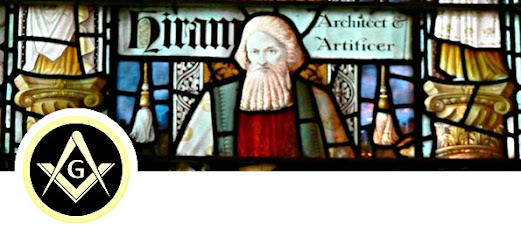
Articles les plus récents
LES SENTIERS D’HERMÈS






































